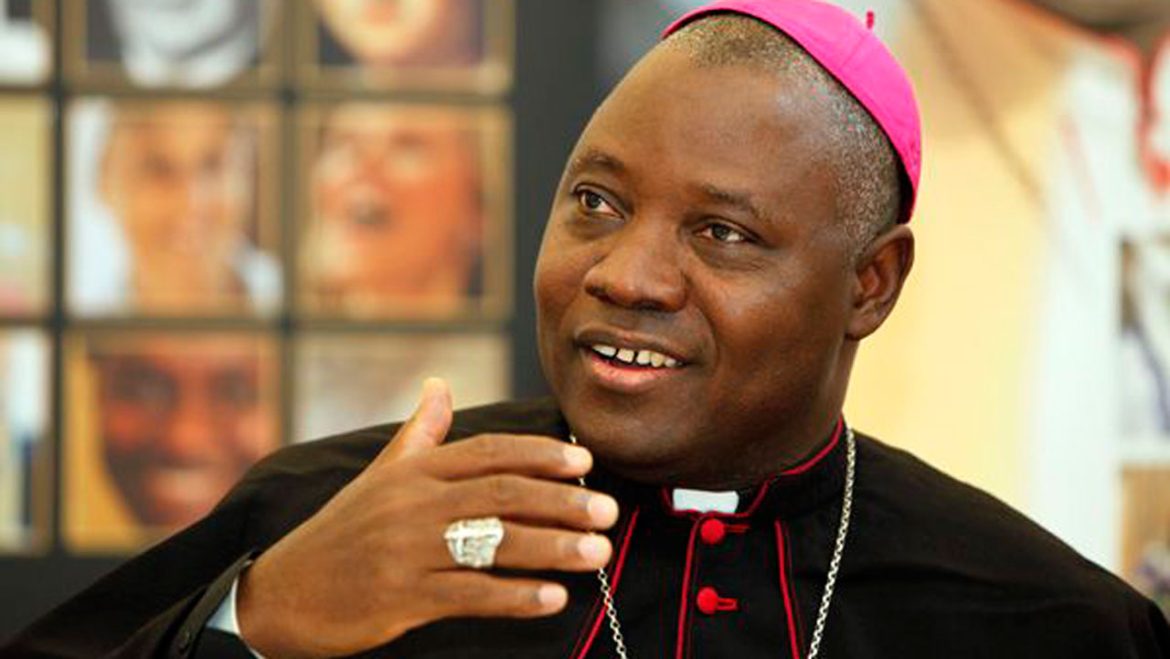824
By Oscar Okhifo
Catholic Archbishop of Abuja, Most Rev. Ignatius Kaigama, has declared that Nigeria will remain stuck in its current pitiable state of insecurity and underdevelopment unless corrupt leaders are decisively punished.
Kaigama made the remark on Sunday during his pastoral visit to St. Luke’s Catholic Church, Kubwa, Abuja, where he also administered the sacrament of confirmation to about 500 candidates.
The visit coincided with the feast of Christ the King, a global Catholic celebration marked with street processions affirming the universal kingship of Christ.
According to the Archbishop, the challenges confronting Nigeria require deep reflection from both citizens and those in leadership.
“On a day like this I should be at the Pro-Cathedral for Christ the King, but when Rev. Fr. Celestine Eze, the Parish Priest, told me he has about 500 recruited soldiers for Christ, I said I must be here,” he said.
Kaigama recalled that the feast, introduced about 100 years ago to draw divine intervention during global crises, has not eliminated the problems confronting humanity.
He prayed to God to touch the hearts of those perpetrating evil in the country.
He lamented Nigeria’s worsening security situation and questioned whether security agencies still live up to their responsibilities.
“Police in other parts of the world are people you run to when in trouble and they will help you but, I don’t know if that is the case in Nigeria,” he said.
The cleric also expressed concern over moral decay, noting that although Nigerians fill churches and mosques every week, the level of evil in society continues to rise.
Kaigama attributed many of Nigeria’s present-day challenges to the aftermath of the 1960 Nigeria/Biafra civil war, which, according to him, entrenched tribal and religious considerations in national affairs.
He decried the culture of shielding corrupt leaders and treating them as sacred cows despite their looting of public resources.
“Rather than being punished, they get honoured, and most of what they stole, their children and grandchildren cannot finish. Until we begin to punish such corrupt leaders, things can’t move forward,” he said.
The Archbishop cited South Africa, South Korea and other nations where erring leaders face justice, contrasting them with Nigeria, where he said regional sentiments often obstruct accountability.
Kaigama also compared Nigeria with Equatorial Guinea, noting that although both countries are oil producers, Nigeria has little to show despite its vast resources.
He stressed the need for leaders who prioritize the nation above tribal and religious loyalties.
“Christ as a leader was sacrificial in his style. He was forgiving, and we must reject hatred and learn to love one another,” he added.
On the frequent calls for prayer in times of crisis, Kaigama urged Nigerians not to lose faith, but acknowledged the concerns of many citizens who feel that action must accompany spirituality.
His comments come at a time when some Nigerians argue that religious leaders should go beyond calling for prayers and emphasize civic responsibility.
It is widely observed that developed nations did not rely on prayers alone to attain good governance; instead, their citizens made conscious political choices.
Critics note that religious leaders should educate their followers on the need to be vigilant, politically aware, and always be upright in voting for credible and competent leaders rather than selling their votes and regretting the consequences later.
They argue that if prayers alone could guarantee good leadership and security, Nigeria, with its high level of religious devotion would by now be one of the most developed and most secure countries in the world.
Kaigama also referenced the declaration of Nigeria as a Country of Particular Concern (CPC) by former U.S. President Donald Trump and the debate around possible foreign intervention.
“America should give us holistic help and not bombing and flying drones. They should not bomb and run away as they did in Afghanistan and Iran after shattering the whole place. That kind of help is not what we want here.” He said.



